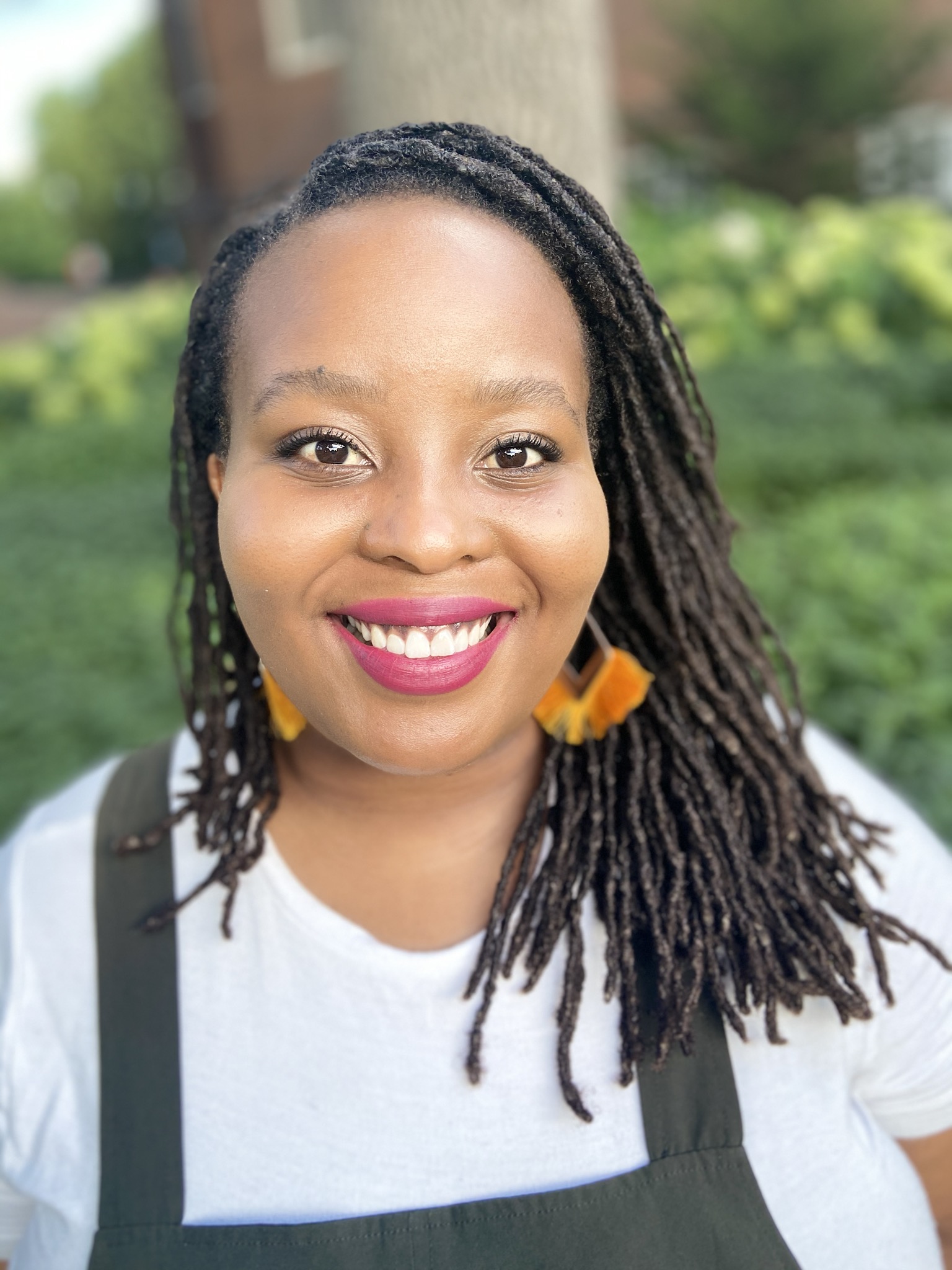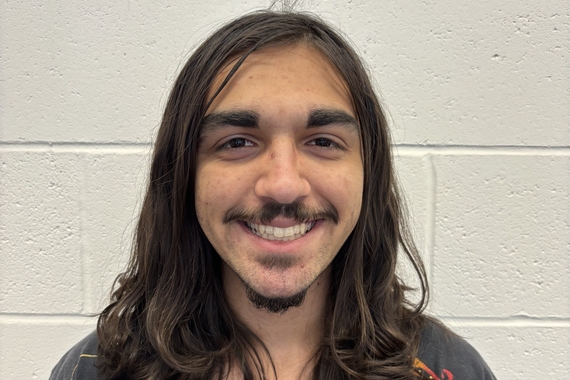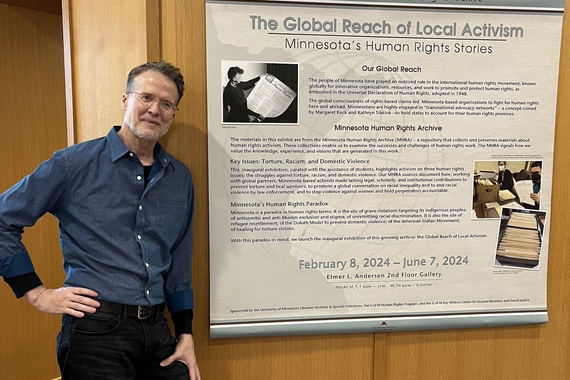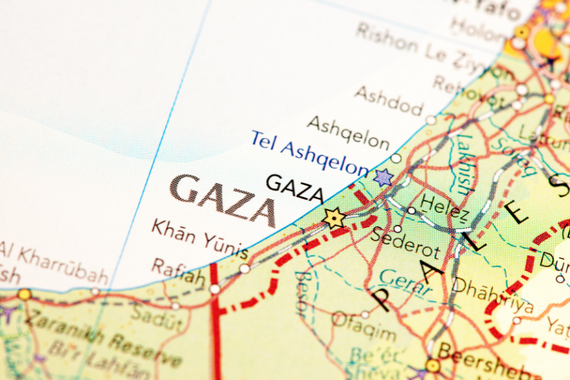MHR Student Examines Protection Networks for Black Lives Matter Activists
Nonkululeko (Nkuli) Shongwe (MHR '21) is a second year Master of Human Rights student with a concentration in economic, cultural, and social justice. Over the summer, Nkuli worked with HRP Director Barbara Frey, Senior Fellow Janet Walsh, and other MHR students to develop a report in partnership with the United Nations Office of the High Commissioner for Human Rights (UN OHCHR) on protection networks for human rights advocates. Nkuli's work focused primarily on networks for Black Lives Matter advocates in the United States. Read our interview with Nkuli below to hear about her experience.
Human Rights Program (HRP): What made you choose to do this research? How does the work you were doing this summer relate to your area of study at UMN?
Nkuli Shongwe (NS): Janet Walsh, Barbara Frey, and two MHR students, Sam and Veronica, were already working on the Human Rights Protections Network project when the uprisings happened this summer. Barbara and Janet thought that it would be important to think about what protection networks look like for Black Lives Matter (BLM) activists in the United States. Barbara invited Ta’Mara and I to be a part of the project. A lot of my studies are really centered on what Black liberation looks like. As a Black person, it is something that is very personal to me, as it is tied to my experience, and the experiences of my family and friends. When Barbara and Janet gave us the project proposal, I thought sounded amazing and interesting in the time that we were in during the summer, and it seemed relevant to talk about the intersections of human rights, activism and race in a more intentional way. It is really interesting to be a part of this project to learn that there aren’t protection networks for Black Lives Matter activists, learn about what the United Nations is planning on doing about the issue and how they hope to broaden their programs to include protection networks for BLM activists. This summer, in addition to Black Lives Matter, we’ve seen an effort to center the voices of queer people and trans Black women who are more vulnerable to violence because of their gender identities. I am excited to learn about what protections the UN is putting in place that are more intersectional.
HRP: What are protection networks?
NS: Protection networks are like safe havens for human rights defenders. For example, they could be under a church, an organization, or a school. It is a place where human rights defenders know they can go for safety and to get education resources they need to continue their work. Protection networks also don't always have to be a physical space, they can just be in the form of resources for human rights defenders.
HRP: What kinds of projects have you been working on this summer? Does one in particular stand out as being of great value and/ or interest?
NS: We have been working on one project that is carrying over to the fall in which we interviewed Black Lives Matter activists about what kind of protection networks they have, interviewed them about their work, and asked them what the Black Lives matter movement means to them because it's so vastly different for different people. It’s also a way for us to understand how they have been impacted by this movement and by their activism. This project started in June/July but people are still active in the community by either protesting or other forms of advocacy, and they additionally may be burnt out from trauma or suffered from loss because in addition to the uprisings, there’s a global pandemic so those two things are hitting people hard. The objective is for Ta’Mara and I to each interview five people, compile all those interviews, transcribe them, and write a memo or a policy brief that we can later turn in to The Office of the United Nations High Commissioner for Human Rights (OHCHR).
HRP: What are some of your key takeaways from this experience?
NS: My key takeaway is first and foremost though this project it is even more apparent that there are no protections for Black Lives Matter activists in particular. A lot of the work that they do is tied to their struggle and their experiences as well, so it's incredibly personal. I said earlier that I am passionate about this work because of my Black liberation but it's also personal because there are similarities in why they are doing this work and why I’m doing this work. The lack of protection networks for Black Lives Matter activists is problematic because there has to be a safe haven for them to go to if they need the resources. Since the Black Lives Matter movement is supposed to be more anonymous - it's not supposed to have a point person - I think maybe that’s why it’s been harder to create protection networks.
HRP: How has this experience challenged you? Was your work impacted by COVID-19?
NS: The work was impacted by COVID-19 because when you want to track people down for interviews it's a lot of emails and not a lot of in person conversations. I like being in person with people so I can read their body language because there is a lot someone can say with how they present or what kind of body movements they use. We are in this movement during a moment in which everything feels apocalyptic in some ways so just reaching out to people feels harder. If I reach out to people, I know it’s easier for them to be like “I’ll just answer that email later”, which is what I do sometimes too. In comparison, if I see someone in person I can say - “I was thinking about you for this project, are you willing to do it?” - there’s more of that personal connection when we’re in person, and that’s missing in this moment right now. Also, trying to figure out how to conduct interviews with technology is a little harder.
Additionally, I think that the way it's challenged me is personal. Sometimes I get bogged down in my head and overthink things. I’m my worst enemy, so this project has taught me how to be brave by emailing people that I know or that I am too scared to ask for information and just pushing myself to do it, because I don’t know what their answer is unless I ask. So essentially just breaking down some assumptions that I’m making about people, about myself, and just being in a space where I challenge myself and reach out to ask people for interviews. If they say no - that’s fine and then I move on to the next step.
HRP: How will this experience help or inform your career path or professional interests?
NS: A lot of my work centers around Black liberation work. Even before Humphrey, a lot of the work that I do nine to five before I go to class speaks to that as well. I think through this work I am able to learn more about what the Black lived experience looks like, especially outside of Minnesota. My role in the project is to interview people from the Midwest, East Coast and West Coast. With this, I’m getting a broader perspective of what those activists’ lives and experiences look like as well as what they do. Yes I’m from the Midwest, and yes I’m interviewing someone from Minnesota soon, but it feels like I’m getting a perspective of life in the Twin Cities that I might not be privy too because of where I sit or what my circles look like. I'm gaining experience and learning what people are doing and really understanding what this Black Lives Matter movement looks like in a larger context that is not just the Twin Cities.
HRP: Are there any other reflections you want to share about this experience?
NS: Something else that I’ve learned though this is experience is just how much trauma exists in the Black community, and how there is no time to grieve. This summer there was George Floyd and then Jacob Blake in Wisconsin, and many more - it was just back to back. Our bodies are always responding to some kind of trauma or conflict in a way so there is no rest.That’s one thing that really resonated with me. Some of my interviewees talked about how they’ve had to create intentional time and space to take care of themselves so that they can wake up in the morning and go to class and whatever and then do this work all over again. That for me was super powerful and impactful because that’s something that I’ve been feeling all summer. It is something that I’ve had conversations about with my mom and it’s just like I’m so tired, my whole body hurts, - it aches, my whole body aches and there’s like no time to be like now rest, breathe, and say “okay we won’t have another huge thing happen for at least six months” or at least take a break for yourself. That’s just not realistic in the times that we live in. It’s not just the uprising and it’s not just the protests, it’s also the pandemic and additional systemic injustices that we continue to face that are highlighted during the pandemic, as well. So yeah, with the trauma that is there -consistent trauma - and no space to be well, even just for a second, it’s just like that’s not an option.



